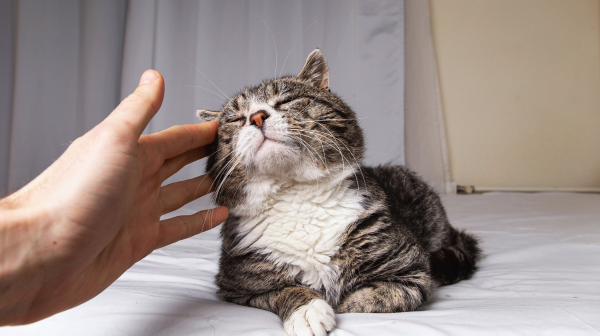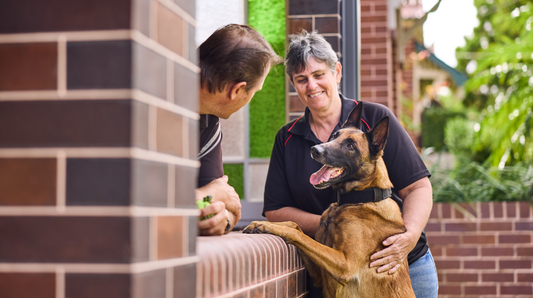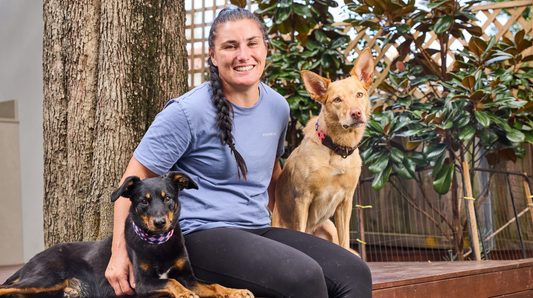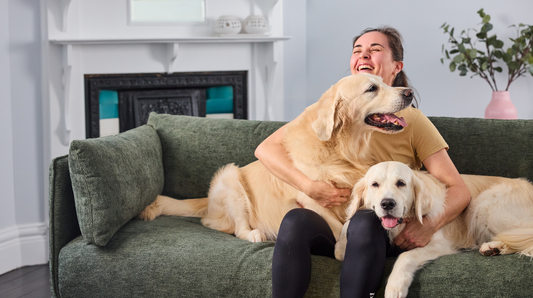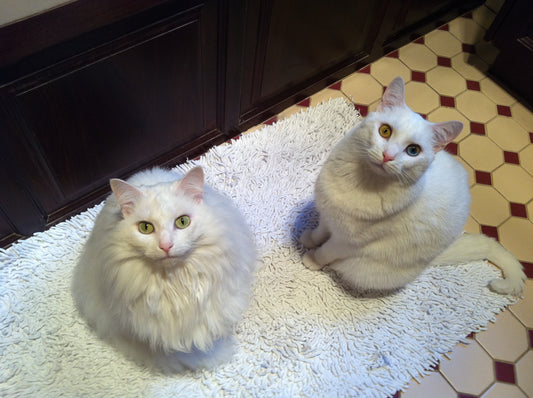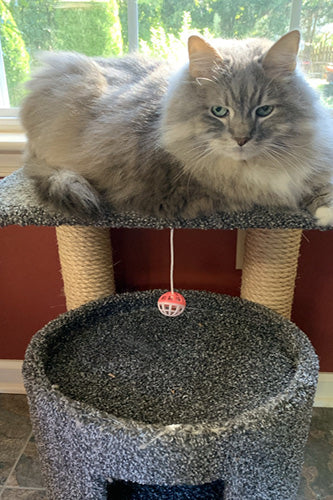Here at Vetz Petz, we love our elderly pets. Most of the team have one or more older furry friend.
So what is so good about adopting a senior cat? Do they need any special care, and where can you go if you're thinking of welcoming an old cat into your home?
When is a cat a senior cat?
Cats mature more quickly than humans and do the vast majority of their maturing during their first few years. Although the average life expectancy of a cat is around 14 years old, many live much longer. Cats are considered to be senior when they reach 7 years old. So adopting a senior cat means you're still likely to have many years together.
Are elderly cats less likely to be adopted?
In Australia, our homeless pet numbers are slightly better than elsewhere in the world, but still, over 5% of all cats in Australia are homeless. Thats twice as many homeless cats as there are homeless dogs. That's a lot of cats looking for their forever home. Often, older cats are overlooked in favour of kittens or younger, more energetic cats. It can take twice as long for a senior cat (over age 7) to find their new home, despite having years of love left to give.
5 Reasons to adopt a senior cat
-
You know what you're getting
A senior cat has already done all its developing. They've done the crazy kitten bit, and they're over the moody teenager phase. Their personality is fully formed. They know their own minds and what they like. There are no surprises with a senior cat...well, not often.
-
They're clean
Most older cats are already toilet trained. Even if they've not lived in a home before, cats are naturally pretty clean and will quickly pick up toilet training in the shelter. Kittens usually take much longer, and there's way more mess and frustration with all the accidents.
-
More snuggles, less whirlwind
Older cats want to conserve their energy and will sleep much more than kittens. They're less time-consuming as they don't need so much focused attention and playtime. They're happy curled up on your lap or snoozing while you work or watch tv. A kitten can be an explosion of energy, crashing into things and demanding you play!
-
Great for kids
Although all interactions between kids and pets should be supervised, older cats tend to be more tolerant of rougher handling than a kitten—and they know when to walk away.
-
A full set of teeth
The teething phase for a kitten can be pretty painful for all involved. They have a natural urge to bite and gnaw on things, from toys to furniture and your hand. Senior cats are over this phase, and they'll only bite as a last resort, not just for fun!
How to keep your senior cat healthy
-
Regular vet checks
Keep on top of your older cat's vaccinations and parasite treatment to keep them in tip-top condition—but also have a regular physical exam to check in on your cat's overall health. Your veterinarian will check for arthritis and dental decay. They might also run blood tests to check their overall health, but in particular to keep an eye on kidney function, which commonly declines with age.
-
The right diet
When a cat reaches 7, their nutritional needs change, and they should be on a senior cat diet. These are specially designed to support your cat as they age. Look for a diet containing high-quality protein that's packed with antioxidants and has controlled mineral levels to support your cat's kidneys and urinary tract health. If you notice your cat is eating less or drinking lots, get in touch with your veterinarian, as it could be a sign of kidney, urinary, or thyroid problems.
-
Support their joint health
It is estimated that 90% of cats over the age of 12 have signs of joint stiffness. Looking after their joints ensures they can live a happy, active life. Adding a high-quality, science-backed joint supplement to their daily routine will support their lifelong joint health—improving their quality of life, and keeping a spring in their step.
-
Pamper them
As cats age, stiff joints mean grooming themselves can get difficult. Older cats often can't twist their bodies enough or get in the right position to keep themselves perfectly preened. Pampering them with a grooming session will keep their coat healthy and is a fabulous bonding activity for the two of you.
-
Climbing aids
Cats love to be up high, but as they get older, it's harder for them to jump up or climb down. Consider an easy-to-access cat tree with ramps, or perhaps move some furniture around to help them reach their favourite spot without putting strain on their joints.
Where can I adopt a senior cat?
Visit your local animal shelter if you have space in your home and heart for a senior cat looking for love.
Adoption fees vary, but you can expect to pay around $150, which will help support the work your shelter does, protecting dogs and cats and ensuring they are safe and healthy.
Visit https://www.rspca.org.au/ to find your new feline friend!
Support your senior cat's joint health with Antinol Plus—a high-quality, science-backed joint supplement that keeps happiness in motion. Get your 60-day risk-free trial here.

